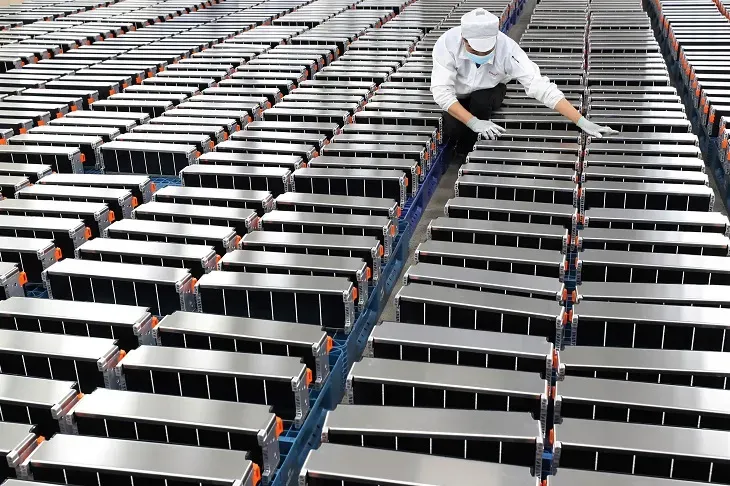Table of Contents
David Wojick
David Wojick, Ph.D. is an inDr. David Wojick is an independent policy analyst and senior advisor to CFACT. As a civil engineer with a Ph.D. in logic and analytic philosophy of science, he brings a unique perspective to complex policy issues. His specializes in science and technology intensive issues, especially in energy and environment.
China has acquired dangerous monopoly power over battery production worldwide. CFACT has published my brief study report on this new threat — “CHINA’S GRAPHITE MONOPOLY.”
To begin with, here is the Executive Summary:
“China is positioned to adversely influence lithium-ion battery production worldwide. China has monopoly control over processed graphite, an essential component of almost all lithium-ion batteries. Virtually all processed graphite, natural and synthetic, is made in China then exported to the battery makers worldwide.
These batteries are used universally in electric and electronic devices, from cell phones and watches to EVs and huge grid-scale backup batteries; there are numerous essential military uses, as well.
China is just now beginning to implement an export control program for processed graphite. By controlling exports, China could, to a significant degree, adversely influence much lithium-ion battery production, such as by raising prices to selected producers or even blacklisting entire countries.
Thus, the potential adverse impact of Chinese monopoly power is enormous. What they will actually do remains to be seen, but the threat is very real.”
A lot has been written about China’s market power in other crucial materials like cobalt and rare earths. But, these cases are weak compared to its monopoly in processed graphite.
In both cases, China is a major player, coincidentally producing about 70% of processed cobalt and 70% of rare earths. Numbers like this are nothing like monopoly control, as there are a lot of other suppliers. In fact, China consumes most of its production because it makes a lot of lithium-ion batteries. It is actually a net importer of rare earths.
In contrast, the policy world seems oblivious to China’s far more dangerous processed graphite monopoly. The only place I have seen it mentioned is by start-ups looking for funding to build domestic production capacity.
There is no lack of raw graphite, as China only produces about 16% of the global total. So, there would be no problem supplying domestic producers with processed graphite. The problem is that the monopoly threat does not stimulate financing because nobody knows about it.
The destructive power of unconstrained monopoly is standard text, i.e., economics. We should be having a large, loud discussion of this threat.
To kick such a discussion off, here is the quick take from my report:
“While no individual Chinese graphite producing or exporting firm has monopoly power, the central permitting authority does have that power if it chooses to assume it. Whether it can or not depends on the internal authority structure and policies of the Chinese government.
Given the far-reaching, potential adverse consequences of such a monopoly, it is certainly worth considering this possibility. It would amount to central planning for strategic purposes.
How monopolies assert destructive power is well-known from both theory and experience. China can easily raise prices to individual battery makers, graphite brokers, or entire countries. In particular, this export-permitting program could become part of a trade war with America, making us a likely target.
Since China is a major battery maker, it could go after its competitors. In principle, China could wipe out a rival battery maker by simply not supplying the essential graphite or it could simply raise the price to that competitor over time, which would be much harder to detect.
Whole markets might be targeted; for example, China could affect the EV market where serious competitors have existed or recently arisen in various countries. Driving up the price of an EV’s battery increases the EV’s price, as well. Simply driving up the price of EV batteries increases electric vehicle prices, making them uncompetitive with cheaper Chinese models.
More broadly, China produces a lot of different lithium-ion batteries, as well as devices that use them. Any of the many competitor markets could be targeted for monopoly action.
There are even geopolitical possibilities. Reportedly, many countries are looking to get into the EV battery-making business. China could force such countries to cooperate in other ways as a condition of supplying them with graphite.
If the above measures seem far-fetched, keep in mind that a monopoly in essential supplies is a very powerful position, and thus a very tempting action to take, well short of open warfare, but still very effective.”
China’s battery graphite monopoly is a clear danger to America and the world. Policy people need to start thinking about this new threat.









